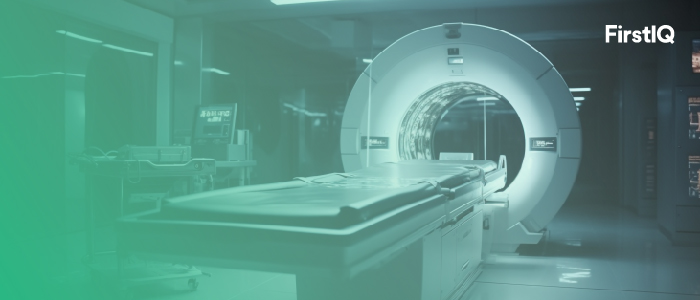Imaging the Future: India’s First Homegrown MRI Scanner Enters Clinical Trials at AIIMS

India has relied on imported MRI systems due to lack of domestic manufacturing of the systems which has resulted in higher procurement prices and limited accessibility. However, the Medical Equipment Production Linked Incentive (PLI) program is currently addressing this problem by promoting domestic production and lowering dependency on imports. 21 medical device firms have been given permission to establish production facilities in India as part of this effort, with a USD 127.6 million commitment. This drive has produced a few significant results, including the creation of India's first 1.5 Tesla MRI scanner, which will be deployed at AIIMS Delhi by October 2025.
- A landmark Memorandum of Understanding was signed on March 2025, between AIIMS Delhi and SAMEER (Society for Applied Microwave Electronics Engineering & Research), an autonomous R&D lab under MeitY, to install and clinically trial the machine. The technology is part of SAMEER's "IMRI - Indigenous Magnetic Resonance Imaging" National Mission.
Dr .M Srinivas, AIIMS Director, highlighted that “AIIMS, with its global standards experience, will conduct rigorous evaluation of image quality and performance, helping developers refine the system.”
Why It Matters
- Cutting Costs: The domestic 1.5 Tesla MRI scanner will drastically cut MRI procedure costs by between 40 and 50 percent. In India, where many people still cannot afford expensive diagnostic imaging, this reduction is essential. Patients in government hospitals and public health programs who cannot afford expensive treatments stand to gain the most from the technology's ability to democratise access across socioeconomic categories by lowering scan prices.
“Prof Rama Jayasundar, Head of Nuclear Magnetic Resonance at AIIMS, said they expect a 40–50 % cost reduction, making imaging far more accessible, especially in government hospitals across India.”
- Strengthening Healthcare Infrastructure: Smaller hospitals and rural areas can now obtain magnetic resonance imaging due to simpler procurement and local servicing. It will help hospitals to reduce lengthy scan times. It makes acquisition of these systems more practical for facilities with limited funding.
- Reducing Import Reliance: India imports USD 215.6 million worth of MRI every year mainly from U.S, Japan, China and other countries. This import reliance not only restraint the national healthcare budget but also effects supply chain.
- Commercial Rollout: Once approved, SAMEER plans a nationwide commercial rollout. The indigenous MRI scanners will be made available to:
- Government hospitals to reduce diagnostic costs
- Private healthcare institutions to encourage adoption of local technology
- Healthcare facilities in remote and rural areas, where imported systems are either too expensive or not functional.
India’s MedTech Evolution Begins with Indigenous MRI Breakthrough
This project aims to make diagnostic imaging more accessible, inexpensive and sustainable in India with the support of the PLI program and important partnerships such as SAMEER and AIIMS Delhi. In addition, the domestic MRI scanner lowers prices, lessens reliance on imports and improves access to healthcare in rural regions laying the groundwork for a more developed, creative MedTech sector in India.





